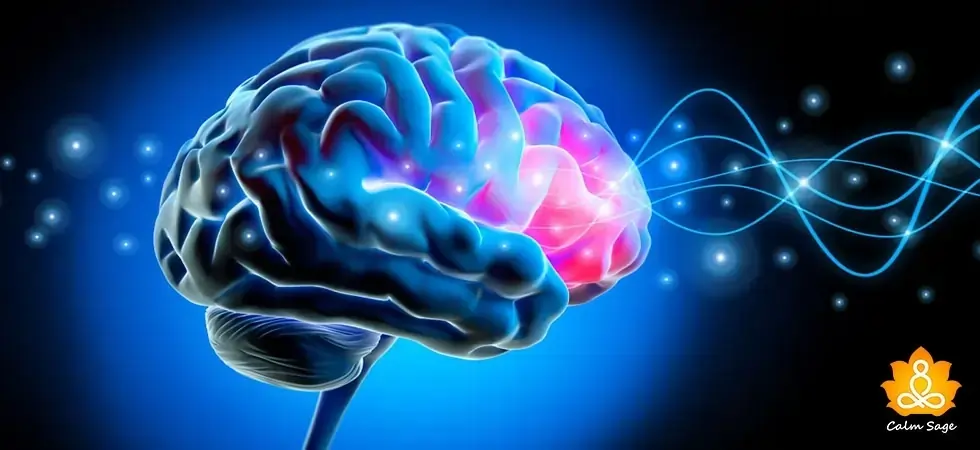“Why Can’t I Cry?” Here’s What Might Be Going On If You Can’t Shed Tears

The lump in your throat grows as your emotions come closer to the surface and yet… you can’t shed a tear. Can’t cry. You feel the sting behind your eyes but the tears won’t fall. Or maybe you just never feel like crying, no matter how sad or distressing a situation may be.
Don’t worry, this is not something you should be ashamed of. If you can’t cry event when you want to, then there are various reasons behind that. Reasons we’ll be exploring more in this blog.
Crying, for many, is a cathartic experience. It helps release the intense emotions that are stuck inside. Yet, many people can’t seem to cry when they’re upset. It’s not that you’ve run out of tears.
Scientifically speaking, an average human produces 15-30 gallons of tears per year! Most of these tears are designed to provide moisture to our eyes and flush out toxins. Our tear glands are always working.
However, as you age, many medical conditions can affect your tear glands. Even medications such as antidepressants, birth control, or even conditions like diabetes can affect the production of tears.
Let’s take a look at some of the potential reasons why you can’t cry.
“Why Can’t I Cry Anymore?” Possible Reasons Why you Can’t Cry:
If you’re wondering about your inability to cry, then let me tell you that there are many reasons from emotional to medical why you are not able to cry no matter how you try.
Physically, your tear glands and the number of tears it produces can be an issue but if it isn’t that then it could be an emotional reason – and very common.
Let’s take a closer look at the list of potential reasons why you can’t cry anymore.
1. Melancholic Depression
Melancholic depression is a type of MDD (major depressive disorder) where you experience symptoms such as hopelessness, flat emotions or no emotions, a disinterest in the world around you, and no reaction to events happening around you.
When you feel little to no emotions, you might face an inability to cry. Think about it, if you’re unable to feel your emotions, how will you produce an emotional reaction?
2. Anhedonia
Anhedonia is mainly a symptom of depression but it can also be a symptom of other mental health conditions. Other times, anhedonia doesn’t have to be a symptom, it can occur on its own. This term refers to the loss of interest in previously enjoyable activities.
If you’re struggling with anhedonia, then you might notice an inability to express your emotions too. People with anhedonia have difficulty crying easily or they might not cry at all. If this is the case with you, it’s recommended you seek help from a mental health professional.
3. Stuck Emotions
Many people can have a hard time freeing their emotions, so normally they bottle them up as a coping strategy. This bottling up emotions can be intentional in the beginning but later, it can become a reflexive action.
Eventually, you’ll experience emotional numbing and even if something tragic happens, you’ll find yourself not being able to display your emotions in the most basic way.
4. Stigma & Stereotypes
Social factors can also be a reason why you can’t openly express your emotions by crying. Crying is a reflexive response to our emotional state. When we grow up, cultural expectations begin to influence our actions – even biological ones like crying.
Or when you grow up hearing that crying is a sign of weakness and “men don’t cry”, this kind of negative stereotype can also influence our emotional response.
5. Medical Reasons
Certain medical conditions can also be a reason why you can’t cry. Conditions such as dry eye syndrome, menopause-related hormonal changes, sjögren’s syndrome, and even certain medications can have side effects that can affect your ability to cry.
How To Release Your Emotions & Cry

It’s important to get your feelings out and express your emotions. Crying is an amazing way you can release your stuck emotions. Crying can bring a cathartic experience when your emotions become too much. Although, it’s not the only option.
Here are some ways you can release your emotions:
1. Label Your Emotions
It can be challenging to explore the emotions you can’t name, right? Let’s try to label our emotions as we explore them. Identify what you’re feeling. Are you sad? Frustrated? Annoyed? When you know what you’re feeling, it can become easier for you to find the right coping strategy to apply.
2. Express Your Emotions
Some people find crying cathartic but if you’re unable to cry to express your emotions, then you can try to find other creative ways to express it. The point is to acknowledge and accept your emotions, no matter how difficult they are.
You can try journaling or use expressive arts to release your emotions.
3. Talk To Your Loved Ones
It can seem scary to open up to your loved ones with your troubles but it’s an amazing way to understand your emotions. You never know what you’re feeling, your loved one may be feeling the same. They can help you validate your emotions or offer a shoulder to cry on.
4. Seek Professional Help
In life, it’s okay to feel stuck. When that happens, it’s perfectly normal to seek professional help. If you’re having difficulty expressing your emotions, then you can consider therapy.
Start your therapy journey today
Note: Apply Coupon Code “CalmSage” and Get 20% Off on Your First Month of Therapy sessions.
Therapy can help you deeply understand those emotions and learn how to cope with them as well. You may even find yourself shedding tears in front of a therapist more easily as they offer a safe, non-judgmental space to be vulnerable.
Is Crying Good For You?
When you look at the bigger picture, then yes, crying is good for you! There are more than just the emotional benefits of crying. Crying can help you manage your emotional stress and can help increase bonds in a relationship.
It gives you a chance to be vulnerable with your partner which helps you increase emotional intimacy in a relationship. In some research, it was found that crying can help improve sleep, reduce inflammation, and even restore your immune system.
Some studies showed that crying releases hormones such as oxytocin, the love hormone, and endorphins, our body’s natural pain killer that can help reduce psychological and physical pain.
When you hold back and bottle up your emotions, you restrict your ability to release emotions. Your inability to cry can then lead you to develop issues such as chronic depression, anxiety, chronic stress, and even weaken your relationships with others.
Writer’s Thoughts
Many people cry even when there is no reason to and many people can have trouble crying when they are upset which is completely normal. All of us are different and we have different ways to process emotions.
While I may easily cry reading an inspirational book, you may not be able to cry even when slicing onions. We have different reasons but that doesn’t mean there is something wrong with us. There are emotional and physical reasons why you can’t cry and I hope I was able to help you understand them.
If you’re still having a hard time crying or understanding your emotions, then you can connect with your loved ones or talk to a professional. Remember, crying is normal and even helpful. Don’t hold those tears back anymore.
If you’d like to connect with us, you can write to us at info@calmsage.com or DM us on social media. If you liked this article, let me know your thoughts in the comments below!
Take Care!
Next Read:





















I think the fact I didn’t get help for the trauma in my life I have all these bottled up emotions and I don’t have the ability to cry. I am so sad I feel like I’m suffocating and I am having so many difficulties in my relationships. People just don’t like me. Even though I am loved by my husband I feel so detached and so alone. I have been accused of not having empathy I often question my existence 😔
Hi, thanks for visiting Calm Sage. The best way to address the inability to cry is to seek professional help, especially if there's an unresolved trauma. A therapist will be able to help you sort through your emotions and help address the detachment you've been experiencing. I hope this helps.